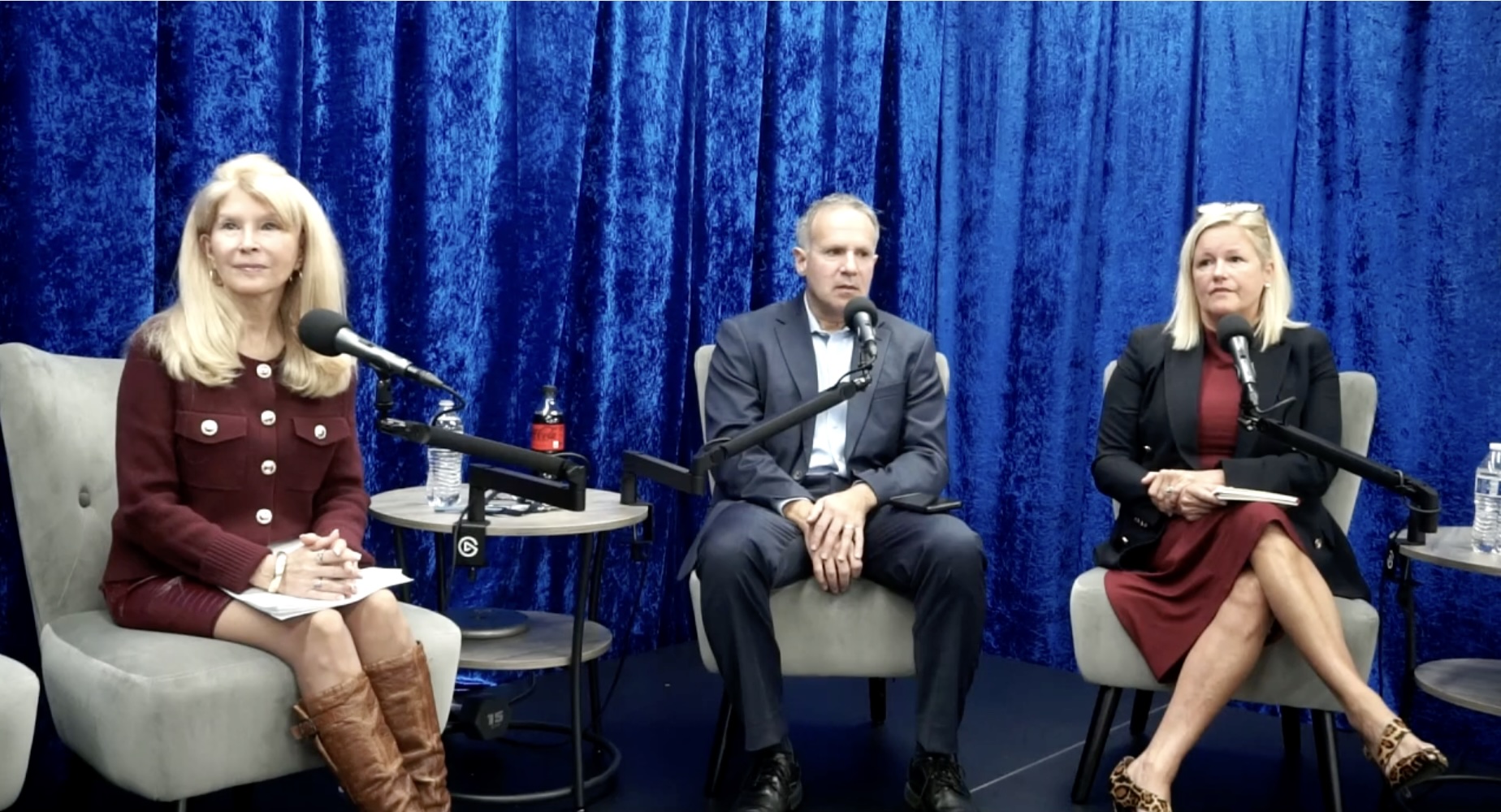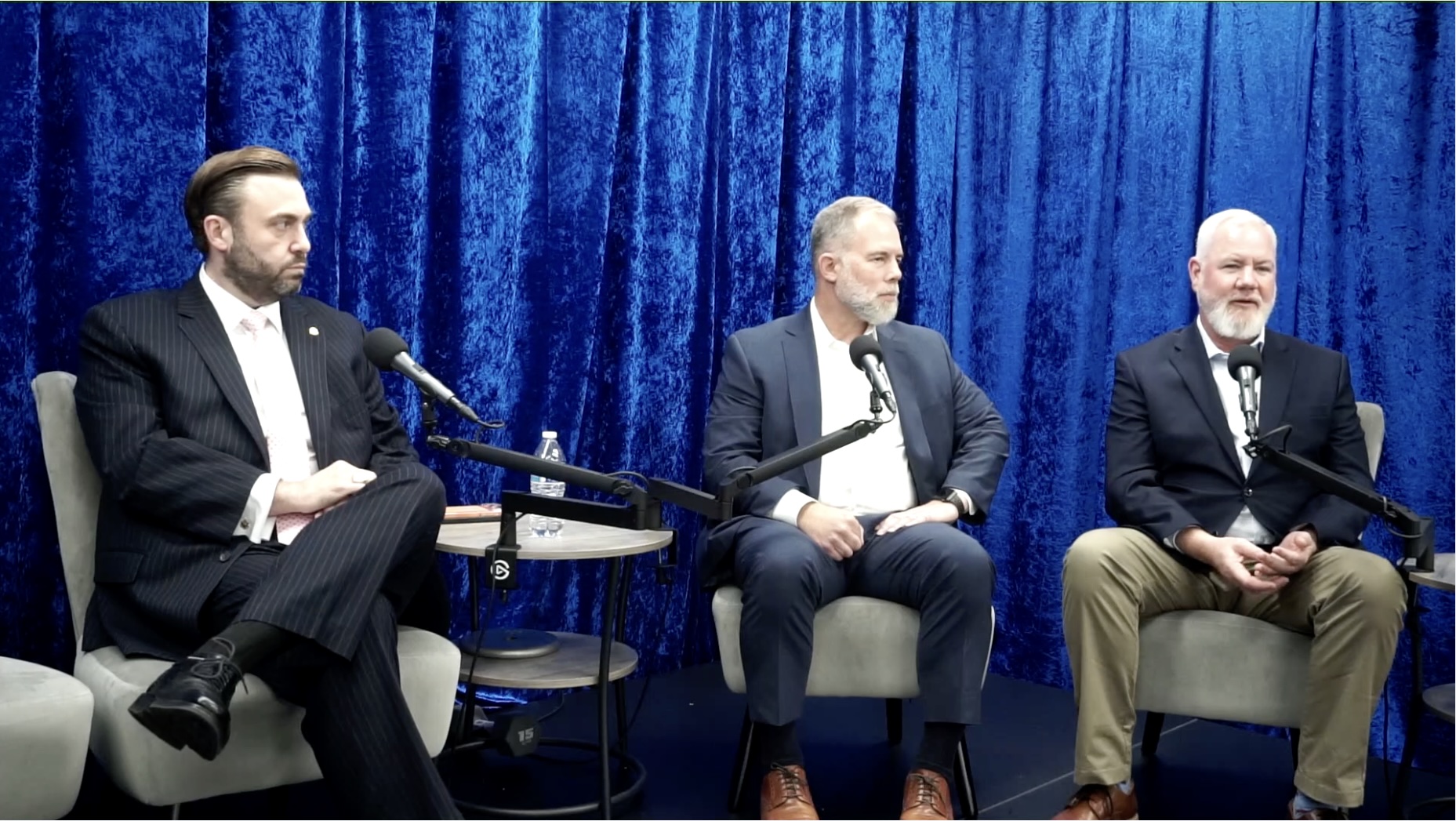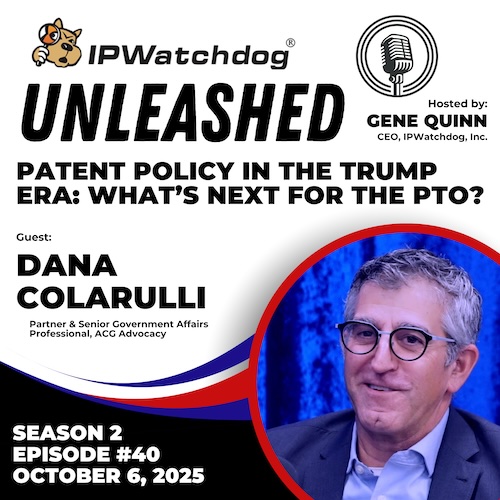“If the U.S. is successful in equalizing prices [with other nations], we’re going to lose a lot of the benefits that accrue from being that dominant payer.” – Patrick Kilbride

From left: Sherry Knowles, Robert Sahr and Becky Kaufman
On day one of IPWatchdog’s Life Sciences Masters 2025, panelists addressed a number of looming policy proposals that are negatively impacting the life sciences industry and urged stakeholders to get involved and speak out in order to minimize their effects.
An introductory panel that included program sponsors Sherry Knowles of Knowles Intellectual Property Strategies and Robert Sahr of Wolf Greenfield, as well as Becky Kaufman of Ohio State University’s Office of Legal Affairs, discussed topics including Secretary of Commerce Howard Lutnick’s patent tax proposal and the administration’s threats to march in on federally-funded university patents.
IPWatchdog Founder and CEO Gene Quinn, who was moderating, noted that such moves seem to be tied more to unrelated issues around purported antisemitism on campuses and combating “woke” ideologies, but the result is a lot of uncertainty in the meantime. “Universities are in a tough position,” said Kaufman, as most need federal money. “It’s shortsightedness from a national security standpoint. We’re causing damage [in] an area where one of our most important geopolitical foes, China, is gaining,” she added.
A subsequent panel focused on providing a “Biopharma Law & Policy Update” and included Brent Bellows of Knowles IP Strategies, Patrick Kilbride of Kilbride Public Affairs and Peter-Anthony Pappas, Director of IP Policy for the U.S. Senate Judiciary Committee under Senator Thom Tillis (R-NC).
Bellows told attendees that “the impacts on the industry are real. We see it every day.” As an example, said Bellows, whereas a loss of exclusivity analysis for a client used to be “pretty basic and straightforward,” that calculation has drastically changed today. “The policy issues floating around at the moment certainly do have an impact on certainty,” Bellows said, referring to policies such as the Inflation Reduction Act (IRA) and Most Favored Nation (MFN) Executive Order in particular.
President Trump sent letters to 17 pharmaceutical companies in August, pressing them to deliver on his May Executive Order 14297, titled “Delivering Most-Favored-Nation Prescription Drug Pricing to American Patients.” Trump gave the companies 60 days to extend MFN pricing to all Medicaid patients, for newly launched drugs, to return increased revenues from negotiations with countries to American patients, and to provide for direct purchasing options to patients at MFN rates.
Trump’s Executive Order aims to reduce drug prices “almost immediately, by 30% to 80%” via a “most favored nations” policy that will mandate U.S. citizens pay the same price as the nation paying the lowest price. As a result, prices in other developed countries will rise “to equalize,” said Trump in a May social media post. So far, Pfizer and AstraZeneca have signed agreements on MFN pricing with the administration.
But Kilbride said that “if the U.S. is successful in equalizing prices” with other nations, “we’re going to lose a lot of the benefits that accrue from being that dominant payer,” specifically, things like earliest access to new medicines and clinical trials. And as foreign countries are pressured to pay more, they’re likely to start issuing compulsory licenses, Kilbride added.
Patent Reform Update, Why ODP Rider Is in PERA

From left: Peter-Anthony Pappas, Patrick Kilbride and Brent Bellows.
Pappas gave an update on the momentum of the key patent bills Tillis has been championing, the Patent Eligibility Restoration Act (PERA) and the Promoting and Respecting Economically Vital American Innovation Leadership (PREVAIL) Act.
While PREVAIL made it further through the legislative process last term, the U.S. Patent and Trademark Office (USPTO) has been aggressively reforming Patent Trial and Appeal Board (PTAB) practices on its own under the Trump administration, leaving some to wonder whether PREVAIL is still needed or likely to continue moving forward. But Pappas said that, in his view, action by the USPTO only bolsters the need for legislation because policy at the agency level changes so often, depending on changes in administration and Commerce Department/ USPTO staff. Thus, the fact that the USPTO clearly recognizes PTAB reform is necessary—although some would argue the steps the Office has taken go even farther than PREVAIL does—only confirms the need for Congress to act.
Pappas was also asked to respond to a recent criticism of PERA by Sherry Knowles, who was present in the audience, regarding the inclusion of a rule of construction in the 2025 version of the bill relating to the judicially-created, non-statutory doctrine of obviousness-type double patenting (ODP). Knowles questioned the reasoning for including such a rider (Section 4(a)) in a bill on patent eligibility, but Pappas said it was simply inserted to confirm that the doctrine would not be impacted by PERA either way.
“It was brought up by another Senate office [that asked] whether ODP would be impacted by abrogating the judicial exceptions; it’s just a statement that it doesn’t touch ODP, just like [the bill] says it doesn’t touch [sections] 102 or 103,” Pappas explained.
Knowles has argued that referring to the doctrine in a statute for the first time could unintentionally codify it in a sense, but Pappas disagreed. However, he urged Knowles and others with criticisms of PERA to continue speaking out and to come to the table.
“We want to hear from all sides,” he said. “It’s important for stakeholders to raise the issues because lots of times [the issues are] not intentional and can be dialed in, tweaked, or we can at least explain why it’s written the way it is.”
Populist Policy Problems
Kilbride and Bellows, for their part, expressed concern about the current trend toward populism generally and its impact on policy and markets. “We’re living in a populist era,” Kilbride commented. While he was hopeful that the populist tide would soon wane and bills like PERA, PREVAIL and RESTORE—which are all inherently aimed at making free markets work more efficiently—would then move forward more easily, that moment “is not quite here yet,” he said.
Bellows, however, said he has less confidence in the tide turning. “I’m not quite as optimistic that we’re going to see a lot of free market principles return. Once you start going down this path, it really is hard to turn around.” Bellows therefore emphasized the importance of getting actively involved in the various policy issues affecting the industry and urging clients to take action as well.
IPWatchdog’s Life Sciences Masters 2025 will be taking place Monday through Wednesday this weekat IPWatchdog headquarters in Ashburn, VA.

![[IPWatchdog Logo]](https://ipwatchdog.com/wp-content/themes/IPWatchdog%20-%202023/assets/images/temp/logo-small@2x.png)

![[Advertisement]](https://ipwatchdog.com/wp-content/uploads/2025/08/Life-Sciences-2025-sidebar-regular-price-last-chance-700×500.jpg)

![[Advertisement]](https://ipwatchdog.com/wp-content/uploads/2025/09/UNH_HybridJD-Ad-A-2025-350-x-200-Junior-Varsity.jpg)






![[Advertisement]](https://ipwatchdog.com/wp-content/uploads/2021/12/WEBINAR-336-x-280-px.png)
![[Advertisement]](https://ipwatchdog.com/wp-content/uploads/2021/12/Ad-4-The-Invent-Patent-System™.png)





Join the Discussion
No comments yet. Add my comment.
Add Comment